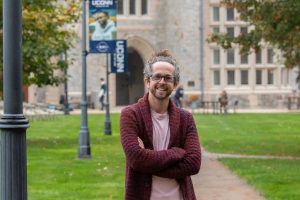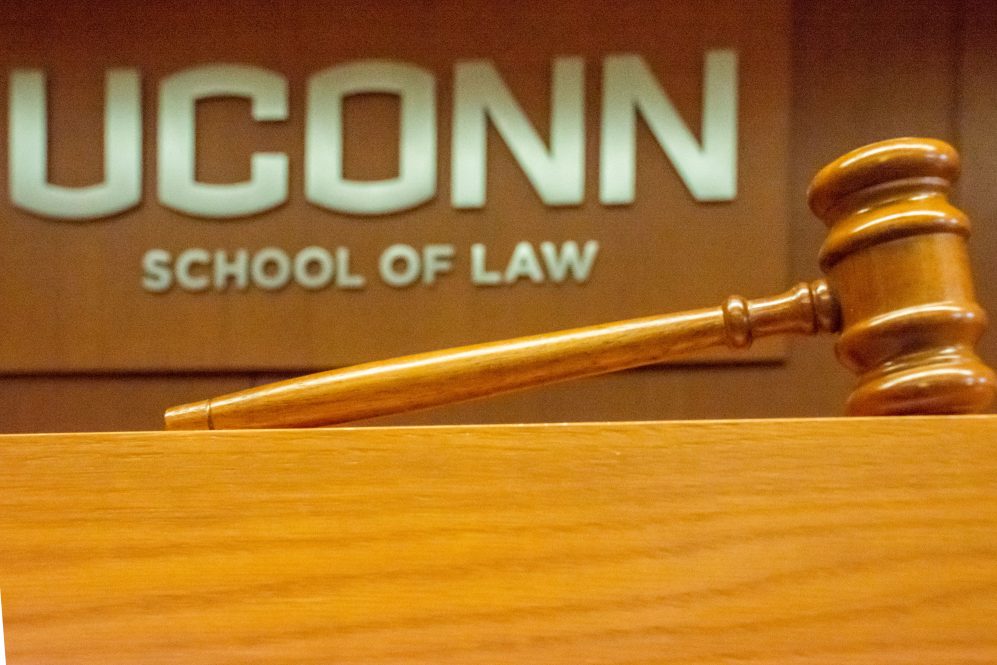The University of Connecticut School of Law has established the Center on Community Safety, Policing and Inequality to bring innovative research, informed by collaboration with public officials and community organizations, to bear on the national conversation about policing.
The new interdisciplinary center will support policy-focused scholarship, host events on related topics, and advise legislative and judicial efforts toward reform. Its director is Professor Kiel Brennan-Marquez, an expert in constitutional law and criminal procedure.

“I am very excited about the establishment of this new center, especially at this critical time in our country’s history,” Dean Eboni S. Nelson says. “It reflects not only UConn Law’s broad expertise in criminal law and related fields but also our commitment to be engaged in local, national and global efforts to help bring about a more just and equitable society. I thank Professor Brennan-Marquez for leading this important work.”
The center will be a hub for community engagement, particularly as it relates to policing issues and other aspects of community safety. The big-picture goal, according to Brennan-Marquez, is to question the assumption that crime prevention should be the criminal justice system’s overriding priority.
“A fuller account of community safety,” he says, “demands attention to the costs of crime prevention and over-policing. And it requires taking stock of the systems of power that leave communities vulnerable in the first place, such as financial insecurity, residential segregation and immigration status.”
Innovative questions about police governance may involve how recruitment and training influence police culture or how insurance coverage influences officer conduct, Brennan-Marquez says. Researchers may examine the ways law enforcement institutions lose public trust, and how they can help restore it. The role of such factors as race, education, health care and housing in determining community safety may lead to a better understanding of how policing can be improved.
Central to the center’s mission is an aspiration to rethink how the UConn School of Law trains its graduates. To this end, the center has established a student fellowship program and named its first three fellows–Mumina Egal, Shane Russell, and Bryce Simmons, all JD candidates in the Class of 2023. And it will explore the development of new curricular offerings related to policing and community safety.
The center is the product of a yearlong planning process. A committee co-chaired by Brennan-Marquez, Professor Jamelia Morgan and Carrie Field, director of graduate and exchange programs, labored over the course of the 2020-21 academic year to hone its vision and goals.
Brennan-Marquez joined the UConn Law faculty in 2018 after serving as a research fellow and adjunct professor at the New York University School of Law and Georgetown University Law Center. He also clerked for Judge Shira A. Scheindlin, the federal judge who presided over the historic challenge to New York City’s stop-and-frisk program in Floyd v. New York. His research focuses on how big data and algorithms are changing the enterprise of policing, and how courts should respond. He earned a BA from Pomona College and a JD from Yale Law School.



